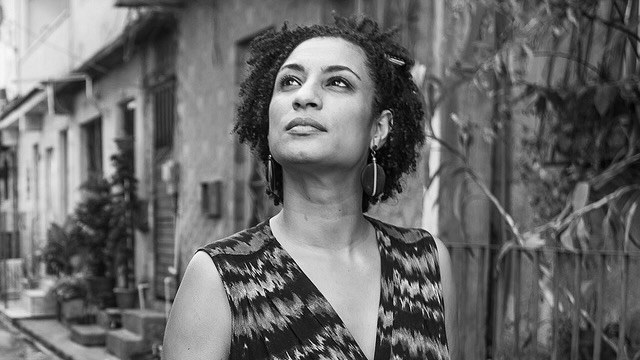On Wednesday, February 22, Brazil’s Justice and Public Security Minister Flávio Dino reported that the government of President Luiz Inácio Lula da Silva had ordered the Federal Police to open a new investigation into the assassination of Afro-descendant activist and councilwoman Marielle Franco and her driver Anderson Gomes, who were shot dead in Rio de Janeiro in 2018.
Dino said that the objective is to “expand the collaboration of the federal power in the investigations into the criminal organization that perpetrated the murders of Marielle and Anderson.”
Last week, on February 15, Dino met with Rio de Janeiro’s Attorney General, Luciano Mattos, and announced the creation of a task force to ensure the progress of investigations into the crime, which will complete five years next month.
Marielle Franco and Anderson Gomes were killed on the night of March 14, 2018. The councilwoman was returning home, taken by her driver, after attending an event in downtown Rio de Janeiro. As they drove, a car ambushed them in the Estácio neighborhood and fired at least 13 shots. Franco was hit four times in the head and Gomes, three times in the back.
On March 12, 2019, two days before the one-year anniversary of the crime, the civil police and prosecutors with the state of Rio de Janeiro arrested two suspects: the retired military officers Ronnie Lessa and Élcio Vieira de Queiroz. According to the prosecution, Lessa was allegedly the one who fired the shots, while Queiroz drove the car that chased and ambushed the victims. Evidence showed that Lessa had been monitoring the events the councilwoman attended and the crime had been planned for three months.
Lessa and Queiroz were charged as the perpetrators of the murder. They have been in pretrial detention since 2019. However, the intellectual authors have yet to be identified. The most important questions regarding her assassination still remain unanswered: Who ordered the murder of Marielle and what’s the motive behind the crime?
Previous investigations indicated that Lessa and Queiroz were members of far-right militias that operate in Rio de Janeiro, with whom former Brazilian President Jair Bolsonaro allegedly had links. Bolsonaro never accepted the claims but the investigations into Franco’s murder could not be clarified during his presidency (2019-2022). However, coincidentally, he dismissed several investigators and prosecutors who were making progress in the investigation of Franco’s assassination.
In January, following his swearing in, Dino vowed to get to the bottom of the crime. “Solving the Franco Case is a matter of honor,” he said. In the following week, he met with Franco’s press advisor Fernanda, who survived the attack. Chaves was in the car with Franco and Gomes but was not hit by the bullets. Chaves said that she was never contacted by officials in the investigations. On Wednesday, Dino assured that the current government will do everything possible “to help solve these crimes.”
Who was Marielle Franco?
Marielle Franco was a Black lesbian human rights activist from Rio de Janeiro’s poor Maré neighborhood who became a symbol of resistance against all forms of oppression. She was widely renowned and honored for her work in Rio de Janeiro before she became a public figure.
When she ran as a candidate for the Socialism and Liberty Party (PSOL), she was the fifth most voted-for member of council in the city’s 2016 municipal elections. During a little more than one year of her mandate, Marielle Franco presented 16 bills in the City Council Chamber, with eight being individual and eight more signed by other council members, skillfully addressing gender, race, and class issues. Five of these bills were passed in an extraordinary session, in August 2018, five months after her assassination.
They dealt with issues like providing care for children while their parents are at work or in school, the training of adolescents that fulfilled socio-educational measures, and specific policies to support women and victims of harassment through the local municipal government.
Marielle Franco’s sister, Anielle Franco, is the Minister of Racial Equality in President Lula’s cabinet.





